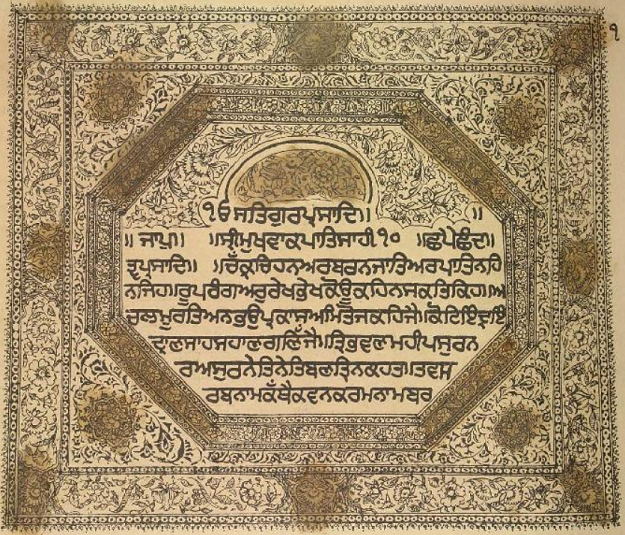

"Under the ICCPR, France may restrict these fundamental rights on only the most compelling grounds, and may do so only so far as absolutely necessary. We submit that France has not made out a compelling case for denying a Sikh the right to wear a turban,” said Mejindarpal Kaur, United Sikhs legal director."
United Nations Plaza, New York, NY, USA - United Sikhs’ lawyers announced that they filed today a legal challenge to the French law banning the wearing of the turban in schools and on ID document photos. The three cases, before the United Nations Human Rights committee (UNHRC), will be the first such cases before the UN since France passed a law in March 2004 banning the wearing of religious symbols, including the Sikh turban, in public schools.
Mejindarpal Kaur, United Sikhs legal director for International Civil and Human Rights Advocacy told a media conference at the UN Church Center: “We are asking the UN to deliver to Sikhs in France their rights under Articles 2, 17, 12, 18, and 26 of the International Covenant on Civil and Political Rights (ICCPR), which are derived from the inherent dignity of the human person.”
“Under the ICCPR, France may restrict these fundamental rights on only the most compelling grounds, and may do so only so far as absolutely necessary. We submit that France has not made out a compelling case for denying a Sikh the right to wear a turban,” she added.
“Last month the European Court of Human Rights, which dismissed a similar case, sent a signal to 25 million Sikhs globally that their religion was not welcome in France. We hope that the UN will say otherwise in support of religious freedom in France,” she added.
- Stephen Grosz, United Sikhs London-based lawyer acting for Bikramjit Singh said via telephone conference call: “Religious freedom is an essential element of a democratic society based on the rule of law. For believers, freedom to practise and manifest one’s religion is an integral part of one’s identity. The overwhelming majority of countries in the free world respect this freedom. Far from being a threat, this diversity enriches society, which should not be sacrificed on the altar of secularism. Nowhere is this more important than in schools, where children should learn to celebrate cultural and religious difference.”
- Bikramjit Singh and United Sikhs are today inviting the UN Human Rights Committee to reaffirm this right and to hold that France’s unyielding policy of secularism in schools violates this fundamental right. “I am confident that we will ultimately be victorious when the French government realizes that we are nice people who have a tradition of integrating and co-existing peacefully in any country we settle in,” said Bikramjit Singh via a telephone interview. Bikramjit was expelled with two other Sikh schoolboys, Jasvir Singh and Ranjit whose cases were filed by United Sikhs lawyers before the European Court of Human Rights, in May 2008.
- “I have never been told by immigration officers that they couldn’t recognize me, when I travelled on my old passport which had my photo with my turban. I don’t understand how the turban can lead to fraud and falsification,” said Shingara Singh via a telephone interview.
- “I dread to think what will happen one day if I should fall ill and need hospitalization as I am not entitled to any health benefit and I cant afford private health insurance,” said Ranjit Singh, 70, who receives a pension of 400 euro a month and spends half if it on rent.
- “The Sikh community needs to find a way of communicating our message to the French government. Since we are inseparable from our turban, our right to wear the turban must prevail,” said Gurdial Singh, president of the French Turban Action Committee who was in New York to attend the media conference today.
One of the applicants, Bikramjit Singh, was 18 years old when he was expelled in 2004 after France passed a law banning religious signs in schools. The other two applicants are Shingara Mann Singh, 52, and Ranjit Singh, 70, whose ID documents renewals have been denied because they refuse to remove their turbans for their ID photos.
Shingara Mann Singh is a 52 year old Sikh from the northern Paris suburbs, whose replacement passport was refused by the French authorities in 2005 because he refused to remove his turban for his ID photo. Shingara Singh, a French national, has had a French passport for 15 years, showing him wearing a turban on his photo.
Pensioner Ranjit Singh has been deprived of health care since 2002 because the French authorities refuse to renew his residence card unless he removes his turban for the ID photo.
Sikhs are required by their faith to wear their hair unshorn and covered at all times by a turban, an intrinsic aspect of the Sikh identity. The applicants refused to remove their turbans because to do so violates fundamental principles of their religion, Sikhism. The baring of one’s head in school or in a photograph is an act of deep personal humiliation for Sikhs.
The French courts which ruled against Shingara Singh and Ranjit Singh said that it was justified to require a Sikh to remove his turban to minimize risk of fraud and falsification. In Bikramjit Singh’s case the French courts ruled that France was allowed to deny him the right to manifest his faith in the interest of the rights of others who wish to observe secularity in schools.
“In essence, France is insisting that the applicants expose themselves not only at the time the photograph is taken, but also each and every time they have to produce their ID. France’s insistence that the applicants choose between repeated violations of their religious beliefs, with the attendant shame and humiliation, and being unable to travel (and transact) freely inside and outside France is unjustifiable.” the lawyers added for the ID cases.
To read about the Right To Turban advocacy initiatives by United Sikhs click http://www.unitedsikhs.org/rtt/
Source: Jaspreet Singh, Staff Attorney, International Civil and Human Rights Committee
Please note, Pathic.org is not responsible for the contents of the press releases published on this site.
Press releases are provided as a public service only.











